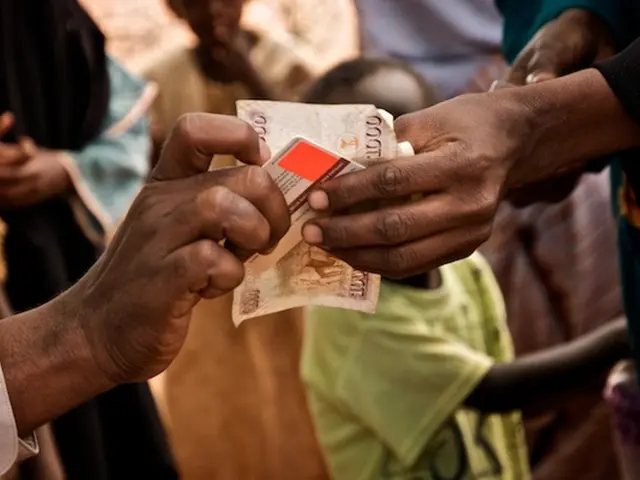Promoting Accountable Gambling: Navigating Safer Gaming Experiences in the Year 2025
In the year 2025, the world of online gaming is undergoing a significant transformation, prioritising player well-being and responsible gambling practices. This shift is driven by a cultural emphasis on mental health, financial security, and community engagement.
Online gaming platforms now offer unmatched convenience and accessibility, but they also amplify the risks associated with gambling. To mitigate these risks, gaming sites are implementing self-exclusion tools and educational resources on responsible gaming practices. External resources are available for additional information on this topic.
One of the key practices for responsible gambling is setting spending and time limits before starting to play. This helps maintain control and prevents chasing losses or losing track of time. Self-exclusion programs allow players to voluntarily ban themselves from gambling sites or physical casinos for set periods, helping break cycles of problem gambling. Bank transaction blocking services prevent gambling payments, adding an extra layer of defence against impulsive bets and enabling financial control. Operator tools such as reality check alerts, session limits, and deposit caps facilitate ongoing monitoring and awareness of gambling habits.
Parental controls and age verification are essential in online contexts, protecting minors from early exposure to gambling. These preventive measures are crucial in fostering a healthier relationship with gambling.
The impact of these responsible gambling practices on individual well-being is profound. They help reduce financial harm by limiting losses to affordable amounts, improve mental health due to decreased gambling-related stress, anxiety, and depression, preserve social relationships by avoiding compulsive gambling behaviours that damage family and friends, and empower individuals to maintain control over their gambling, fostering healthier decision-making and enjoyment without negative consequences.
Numerous apps have emerged to help players track their spending and set reminders for breaks. Some societies advocate for strict regulations and provide support resources for those battling gambling addiction. In 2025, it's time to reshape the conversation about gambling to emphasise community, support, and the joy it can bring.
Joining or organizing a local group dedicated to discussing and exploring the principles of responsible gambling is a possibility in 2025. Normalizing local game nights or gambling awareness events can foster an environment that encourages open dialogue about responsible gambling. Establishing personal limits is essential in responsible gambling, such as setting a budget and time limits.
Gambling can be a social activity, driven more by laughter and shared moments than by financial gain. Reflecting on cultural nuances can guide us toward fostering a healthier relationship with gambling. In 2025, the focus is on balancing enjoyment and safety, encouraging awareness and informed choices. Responsible gambling seeks to promote well-informed, self-controlled, and proactive approaches to gambling, which are crucial for sustaining personal well-being and preventing gambling addiction and its associated harms.
- In the shift towards responsible gambling practices in online gaming, educational resources are being provided to educate players about unmatched convenience and accessibility, as well as the amplified risks associated with gambling.
- To maintain control over gambling activities, individuals can utilize self-exclusion programs, setting spending and time limits, as well as bank transaction blocking services that prevent gambling payments.
- Fostering a healthier relationship with gambling involves protective measures such as parental controls and age verification, which are essential in keeping minors away from gambling.
- As the focus moves towards promoting well-informed, proactive, and self-controlled gambling practices, local communities can organize groups dedicated to discussing and exploring the principles of responsible gambling, encouraging social events that highlight the joy of gambling while prioritizing well-being.







